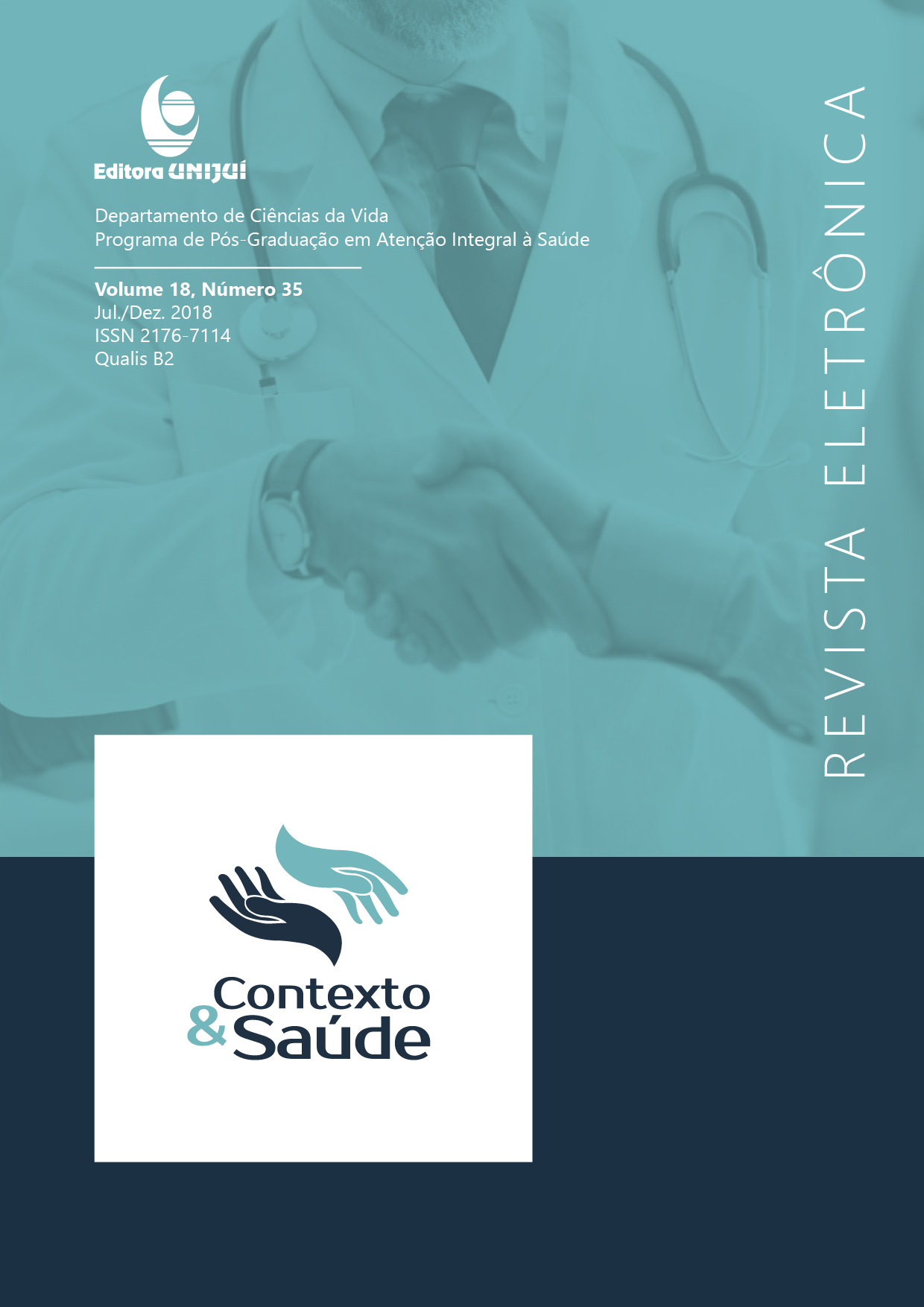AVALIAÇÃO DA CAPACIDADE FUNCIONAL DE IDOSOS INSTITUCIONALIZADOS EM UM MUNICÍPIO DE PEQUENO PORTE DO NOROESTE DO ESTADO DO RIO GRANDE DO SUL
DOI:
https://doi.org/10.21527/2176-7114.2018.35.13-18Keywords:
Envelhecimento. Idoso. Atividades Cotidianas. Instituição de Longa Permanência para idososAbstract
Com o aumento da longevidade, é possível observar uma maior parcela de idosos, os quais muitas vezes apresentam déficits na capacidade física, mental e cognitiva. Em decorrência deste fenômeno surgiram Instituições de Longa Permanência de Idosos (ILPIs), designada ao cuidado dos idosos, tanto para aqueles que necessitam de uma assistência maior quanto para aqueles que apresentam uma boa independência funcional. Objetivo: Avaliar o grau de capacidade funcional de idosos institucionalizados, identificando suas principais limitações no domínio cognitivo e motor. Métodos: Estudo transversal, quantitativo, descritivo e analítico com 12 idosos residentes da ILPI em um município do Noroeste do Estado do Rio Grande do Sul. Foram utilizados como instrumentos norteadores um questionário sociodemográfico e a medida de independência funcional (MIF). Resultados: Os idosos institucionalizados apresentaram na escala total da MIF independência funcional completa com escore de 116,42 ±14,0, porém o item de domínio cognitivo correspondeu a cognição social apresentando escore de 16,92 ±3,73. Conclusão: Os idosos institucionalizados apresentaram resultado final independência completa, porém os escores da cognição social mais especificamente a resolução de problemas teve pior desempenho.
Downloads
Published
How to Cite
Issue
Section
License
By publishing in Revista Contexto & Saúde, authors agree to the following terms:
The works are licensed under the Creative Commons Atribuição 4.0 Internacional (CC BY 4.0) license, which allows:
Share — to copy and redistribute the material in any medium or format;
Adapt — to remix, transform, and build upon the material for any purpose, including commercial.
These permissions are irrevocable, provided that the following terms are respected:
Attribution — authors must be properly credited, with a link to the license and indication of any changes made.
No additional restrictions — no legal or technological measures may be applied that restrict the use permitted by the license.
Notes:
The license does not apply to elements in the public domain or covered by legal exceptions.
The license does not grant all rights necessary for specific uses (e.g., image rights, privacy, or moral rights).
The journal is not responsible for opinions expressed in the articles, which are the sole responsibility of the authors. The Editor, with the support of the Editorial Board, reserves the right to suggest or request modifications when necessary.
Only original scientific articles presenting research results of interest that have not been published or simultaneously submitted to another journal with the same objective will be accepted.
Mentions of trademarks or specific products are intended solely for identification purposes, without any promotional association by the authors or the journal.
License Agreement (for articles published from September 2025): Authors retain copyright over their article and grant Revista Contexto & Saúde the right of first publication.

